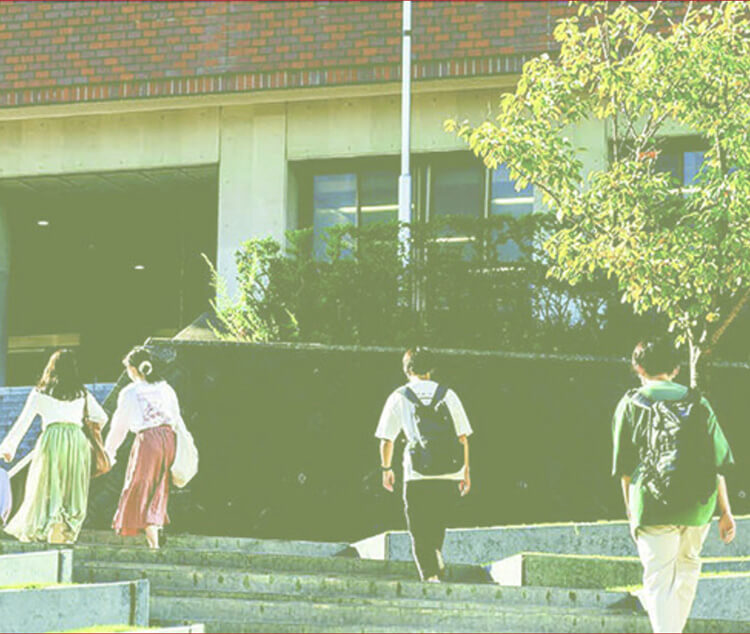Department of Japanese Culture
Faculty of International Studies of CultureFor those who wish to enroll in 2026
For information on the 2026 curriculum, please see the latest university guide below.
Department News
What is Department of Japanese Culture?
The key to opening the door to the world is to know Japanese culture inside and out.
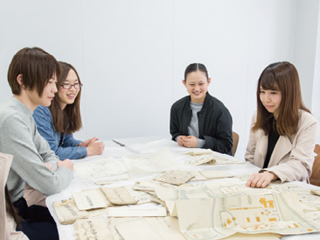
Japanese culture is attracting attention from around the world. Understanding and communicating its appeal is an essential quality for people who are active internationally. Japanese language teachers are essential in a society that coexists with immigrants from overseas, and can spread Japanese culture to the world through education. In addition, communication skills through high Japanese language proficiency also lead to improved foreign language proficiency. The knowledge gained from obtaining a Japanese language teaching license is also advantageous in job hunting. Many business managers say that humanities education is essential for management. Through studying in this department, you can take a broad view of culture from a global perspective. We want to train people who have a rich "humanness" that AI does not have and who can adapt to future changes.
Admission Policy
- 01
- People who are interested in Japanese culture (literature, language, folklore, history)
- 02
- People who are interested in learning about Japanese culture from a global perspective
(Admission Policy) - 03
- Those who wish to contribute to society through a specialized understanding of Japanese culture.
*We plan to apply for training courses related to registered Japanese language teachers. (However, as a result of the review by the Ministry of Education, Culture, Sports, Science and Technology, it may not be possible to open the planned practical training (or training course).)
Characteristics of the Department
01Become a specialist in Japanese language and Japanese culture
Students study Japanese culture from a comprehensive perspective, covering Japanese language, literature, folklore, and history. Graduates are active in the fields of general business and civil service, Japanese language teachers at junior and senior high schools, and Japanese language school teachers.

02 Research Example: History of Educational and Cultural Exchange: Japanese Teachers Who Crossed the Sea
This book studies the education and intercultural exchange provided by Japanese teachers who went to the continent before the war. Japan will become a society with a high death rate in the future, and accepting foreigners is an urgent issue. We look for clues about possible situations.
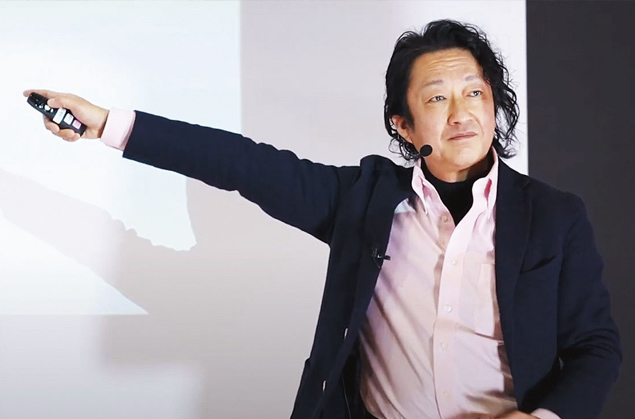
Advanced Program
A motivational support program!
KSU Teachers Academy: Continue learning to become a trusted teacher [KSU Teachers Academy]
The Academy for Educational Leadership (AEL)
We have opened the "KSU Teacher Academy" to develop the mindset and skills required to become a teacher for all students enrolled in the teacher training course at the university. The goal is to improve communication skills, teaching ability, and intelligence so that students can become trusted "teachers" by passing the teacher recruitment exam.
- First exam preparation course
We focus on preparing students for the Teacher Education Examination. In addition to the legal knowledge required after becoming a teacher and the historical background of education, students will also learn about educational principles, student guidance, educational psychology, current educational events, and other topics in relation to the situation at school. - Secondary exam preparation course
In order to improve practical teaching skills, students will practice mock lessons. Students will observe each other's lessons, hold discussions, and improve each other so that they can develop lessons that are tailored to the students. Through interview exercises, students will improve their ability to communicate with colleagues and parents, and their ability to respond flexibly. Students will steadily improve their skills by thinking about and responding to various questions from teachers, and by repeatedly preparing for the next exercise. - A consultation system that values the thoughts of each individual
We hold consultation sessions about once a week in the teacher training room and teacher support room. We answer a variety of questions, including concerns about becoming a teacher, worries about your future career, and preparations for teaching practice. We also spend relaxing time having fun conversations.
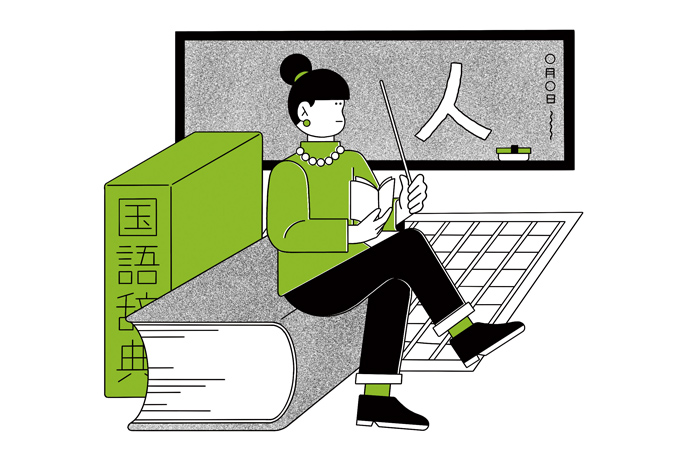
Four-year learning process
First year foundation building
Using "Seminar I" as your home ground, you will take classes focusing on general subjects and work hard to build the foundation for learning about Japanese culture.
Department of Japanese Culture Courses
Introduction to Japanese Culture, Introduction to Asian Culture, Introduction to Western Culture, Introduction to Japanese Language Education, Grammar of Japanese Language Education, Seminar I, Japanese Literature, History of Japanese Literature, Japanese Linguistics, Japanese Writing
etc.
Second-year students select seminars and acquire the basics of their specialized fields
Through reports in "Seminar II" and specialized subjects, students will deepen their knowledge and understanding to be able to talk about Japanese culture in their own words.
Department of Japanese Culture Courses
Japanese Language Teaching Methods, Japanese Language Education Lesson Study, Seminar II, Literary Field Research A, Literary Field Research B, Project Exercises, Introduction to Classical Japanese Literature, Introduction to Modern Japanese Literature, Reading Japanese Classical Literature, Reading Modern and Contemporary Japanese Literature, Japanese Grammar, Writing Methods A, Writing Methods B, Introduction to Folklore, Introduction to History, Traditional Culture, Traditional Literature, Literature and History, Language and Culture, Japanese Language Education Methods A, Japanese Language Education Methods B, Chinese Literature, Calligraphy Practice
etc.
Third year: Further study of specialized fields
Students will be encouraged to pursue their research through a curriculum that includes "Seminar III" and specialized subjects, and is equipped with a high level of expertise and a wide variety of methods.
Department of Japanese Culture Courses
Japanese Language Teaching Practice, Seminar III, Special Lectures on Japanese Literature, Special Lectures on Classical Japanese Literature, Special Lectures on Modern Japanese Literature, Japanese Phonology, Special Lectures on Folklore, Special Lectures on History, Media Culture, Publishing Culture, Language and Society, Cursive Reading, International Japanese Studies, Archaeology, Subject Teaching Method A (Japanese), Subject Teaching Method B (Japanese)
etc.
4th year: Activities for the future (employment and further education)
As a culmination of their studies, students will write a graduation thesis and finalize their research on Japanese culture.
Department of Japanese Culture Courses
Graduation thesis/graduation research
etc.
Class Pickup
Learn Japanese writing professionally and
Deepen your knowledge of Japanese culture
Japanese Writing Theory | Professor Mie Karashima
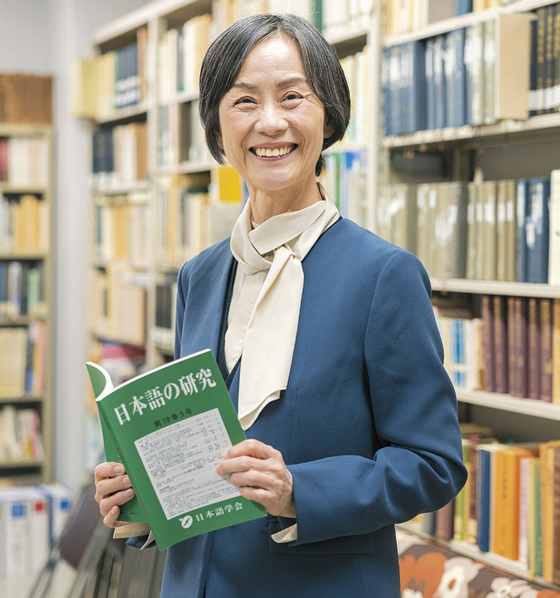
This is a specialized class on Japanese characters and writing. In Japanese, there are various ways to write a single word, such as "tane," "tane," or "tane" for "seed," and the characters used are also diverse, including kanji, hiragana, katakana, and romanized letters. What is the principle by which we use these characters differently? What is the historical background behind this? Through this class, you will learn about the history of kanji and kana, the diversity of the kanji cultural sphere, the rules of modern writing, and more, deepening your knowledge of the Japanese language and culture.
Our trivial stories, our lifestyles, our culture,
Interpreting it as a resource for understanding people's feelings
Traditional Literature | Lecturer Akari Kawamatsu
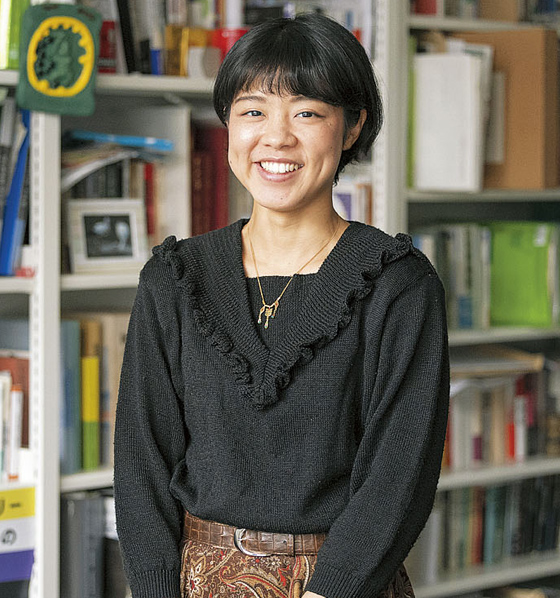
When you think of literature, you probably think of it as something written by famous authors. However, we talk to people every day and tweet on social media. Oral literature research in folklore has turned the insignificant stories of such nameless people into important material for learning about their lifestyles, cultures, and feelings. In this course, you will learn techniques for listening to each other's stories from the perspective of oral literature.
Seminar Pickup
Kei Sunaga Seminar
Based on a survey of temple and shrine materials in Fukuoka City
Contribution to the local community
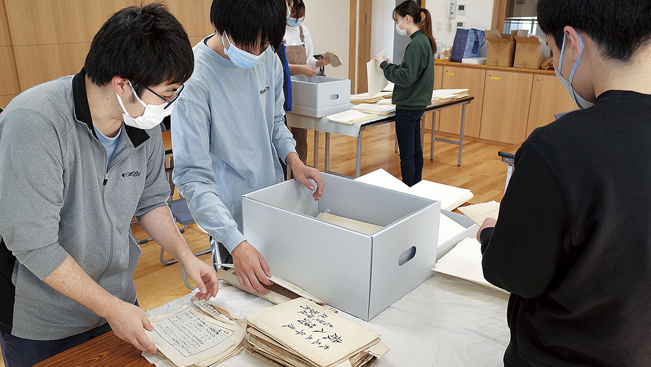
We visit shrines and temples in Fukuoka City (such as Kashii Shrine and Shikanoumi Shrine) and organize, research, and analyze the valuable materials stored there, through which we conduct highly specialized classes that would not be possible on campus. The results of this project's research are provided not only to the temples and shrines surveyed, but also to the city of Fukuoka, contributing to cultural property protection and cultural property administration in the local community.
During the Shigaumi Shrine survey, I was able to actually handle materials that would normally only be seen through glass cases in museums, and help with the management work. I was nervous, but I enjoyed the work while thinking about the historical background of the time!
Chihiro Koga, 2nd year
Miyaki High School/Saga
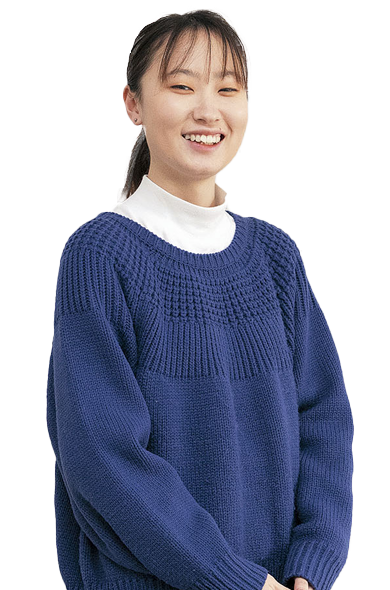
Junichiro Sakai Seminar
Not the stereotypical "Japan"
Exploring "REAL JAPAN"
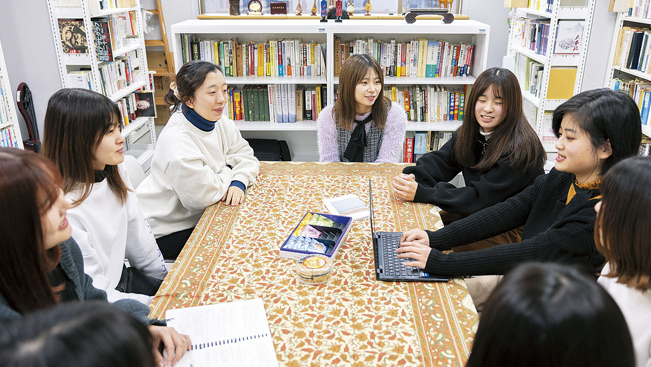
I am researching how Japan engaged in cultural exchange (school education, Japanese language education, books, videos, etc.) with Asia during the war. The lesson I learned is the danger of self-centered cultural exchange. There was a lot of friction as a result of not trying to learn the language and culture of the other country, and instead interacting with them based on our own culture and customs. Nowadays, it is common to work with people from different cultures. Why not try to learn these lessons?!
The conditions for a successful "Sangyo University student" are: 1) time management, 2) language skills, 3) a wide range of study in humanities, science, and arts, 4) interaction with domestic and international students, and 5) social activities with friends. This seminar is conducted with enthusiasm and fun. Let's aim to become "Sangyo University students" who overturn the public's opinion!!
Saya Haraguchi, 2nd year
Ariake Shinsei High School/Fukuoka
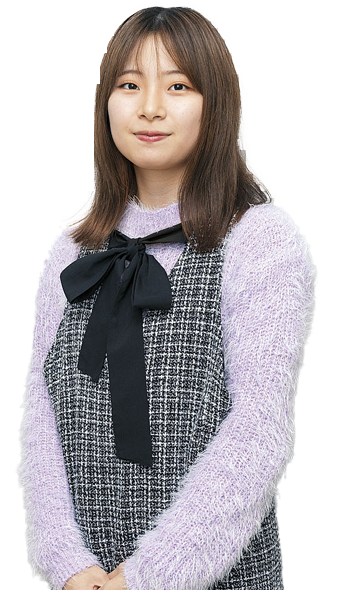
Qualifications and career path data
Qualifications to aim for
- ■ Junior high school teacher license (Japanese)
- ■High school teacher license (Japanese)
- ■日本語教員(※)
- ■ Curator
- ■Social educator (training course)
*We plan to apply for training courses related to registered Japanese language teachers. (However, depending on the results of the review by the Ministry of Education, Culture, Sports, Science and Technology, it may not be possible to open the planned practical training (or training course).)
Industry Graph

Main Employment Destinations
Oita Prefectural Government / Tottori Prefectural Government / Fukuoka Prefectural Junior High School Teachers / Fukuoka City Junior High School Teachers / Kitakyushu City Junior High School Teachers / Fukuoka Prefectural Elementary School Teachers / Fukuoka Prefectural Fukuoka Special Needs School / Kyushu High School Affiliated with Kyushu Sangyo University Sangyo University / Higashi Fukuoka Gakuen Higashi Fukuoka High School / Kafuku Takamiya Gakuen Yoyogi Seminar / National Hospital Organization Kyushu Group / Oka Bank Ltd. / Onga Shinkin Bank / Saken Agricultural Cooperative / Lawson Co., Ltd. / Izumi Co., Ltd. / Kyushu Railway Company / Apple Japan Co., Ltd. / AEON Kyushu Co., Ltd. / Zoff Co., Ltd. / Fukuoka Prefectural Social Education Center
Graduate Interview
Miyu Yuasa
Yonago Nishi High School / Tottori
- Employment
- Tottori Prefectural Office
I took the curator training course and the teacher training course. I was attracted to both, so I decided to work at the prefectural government, where I could work with museums and educational institutions. I think this is a job where I can use the knowledge I gained about Japanese culture and literature in my classes.
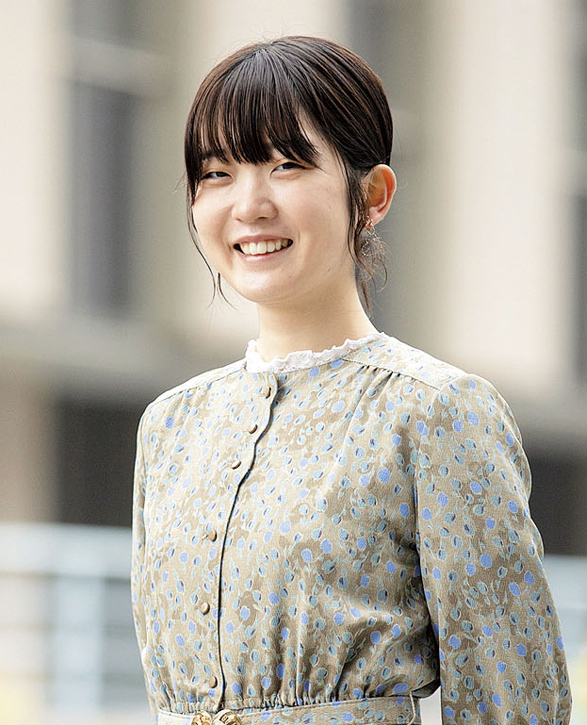
Nozomi Kuraju
Xavier High School/Yamaguchi
- Employment
- Fukuoka City Junior High School Teacher
The appeal of Department of Japanese Culture is that you can learn about Japanese culture from various angles, such as literature and folklore, and study it in depth. Now that I stand in front of the classroom as a Japanese language teacher, I want to convey the appeal of Japanese language to many students so that they will fall in love with it.
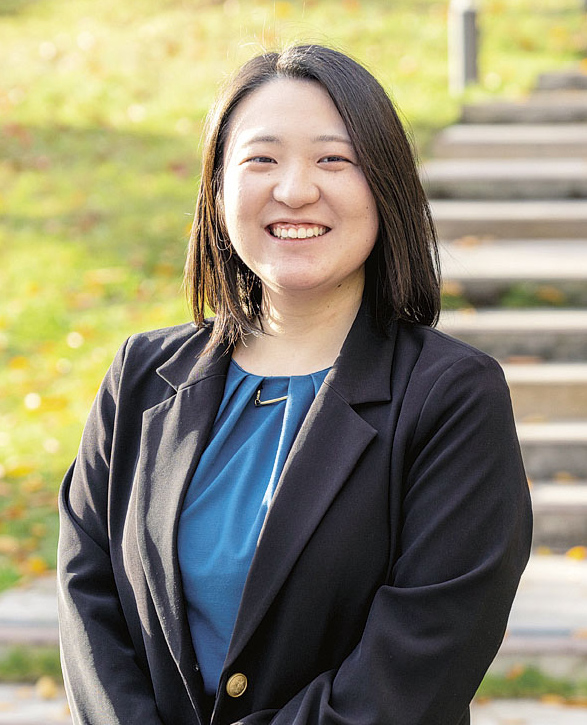
Yoshimi Furunaga
Baiko Gakuin High School/Yamaguchi
- Destination
- Kyushu Sangyo University University Graduate Graduate School of International Studies of Culture
Writing my graduation thesis has strengthened my desire to learn more, and I have decided to go on to graduate school. I want to work in education in the future, and I am aiming to obtain a teaching license for Japanese language in addition to my graduate studies.
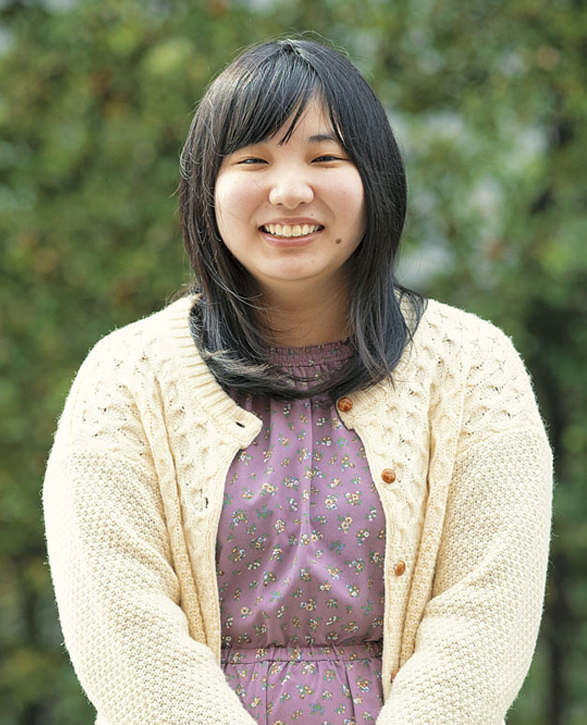
If you cannot view PDF files, please download Adobe Reader.

